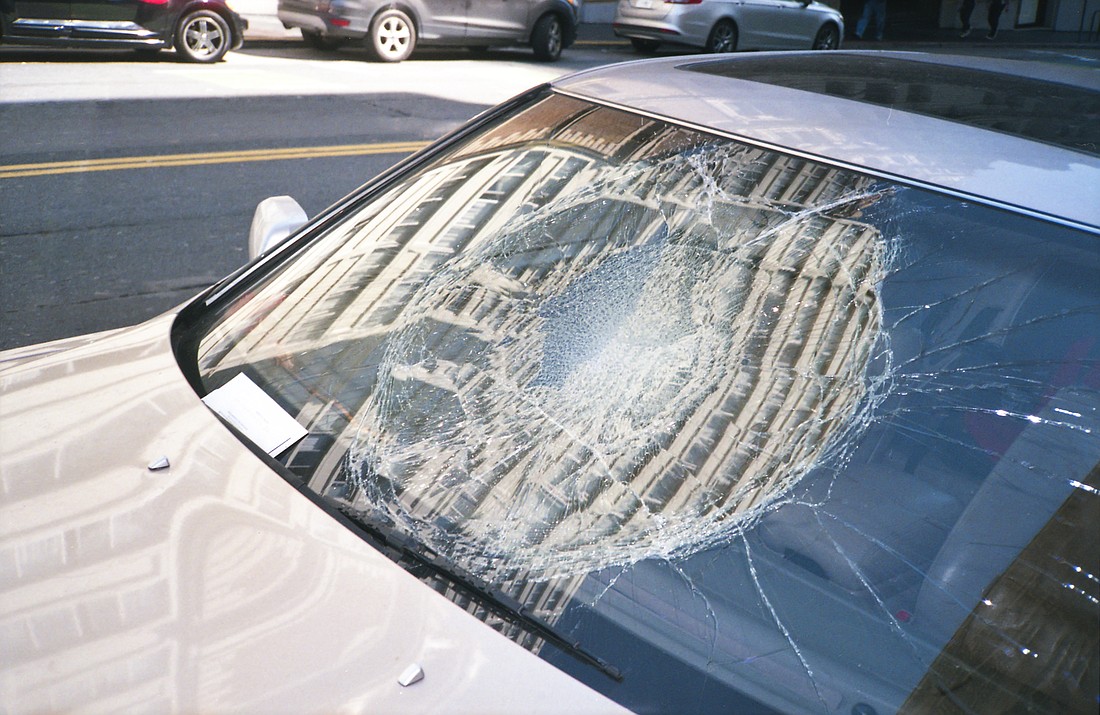- July 26, 2024
-
-
Loading

Loading
 UnSplash/Will Creswick
UnSplash/Will Creswick
Bipartisan legislation filed ahead of the upcoming legislative session in Tallahassee will, if passed, change current state law that tort reform advocates say allows lawyers and repair shops to cash in on window replacements.
Sen. Linda Stewart, D-Orlando, and Rep. Griff Griffitts, R-Panama City Beach, have filed bills in each chamber that closes so-called loopholes in the current law and will keep vendors from taking assignments of insurance policy benefits for auto glass claims. The senate bill would also prohibit glass companies from giving perks to customers to get them to file an insurance claim.
The bills are SB 1002 and HB 541.
“We have all seen the signs offering us cash or gift cards to have our windshields replaced,” Stewart says in a press release sent out by an initiative called Fix the Cracks. “These incentives sound great, but the reality is some of these services are using you to sue your insurance for more money than the replacement actually costs. This behavior ultimately contributes to the ever increasing auto insurance rates as insurers raise rates to compensate for their losses from this practice.”
Fix the Cracks, according to its website, is a movement whose main partners are advocacy organizations from across the state. Among them are the Coalition Against Insurance Fraud, the Personal Insurance Federation of Florida and the Justice Reform Institute.
These organizations, and others, are part of a growing tort reform movement in Florida that’s aimed at eliminating rules that are blamed for creating an environment where filing lawsuits is rewarded — even though legal fees are a large part of why insurance rates are going up on all lines across the state.
Lawyers and trial bar, for the most part, disagree with this sentiment, arguing that they are looking out for clients who are not getting what is owed to them from insurance companies.
The issue is particularly troubling in the property insurance market, where Florida leads the nation in the number of lawsuits filed. Industry insiders on nearly all sides of the issue agree these lawsuits are what’s led to the near collapse of the market in the state and why so many property insurance companies refuse to write policies here or become insolvent.
But change, it seems, is afoot. Legislators held two special sessions in the past year that led to reforms to some fee structures — particularly one-way attorney fees — and how claims are processed in the hopes of easing the pressure on the system.
And, earlier this month, House Judiciary Chair Tommy Gregory, R-Lakewood Ranch, and Tom Fabricrio, R-Miami Lakes, introduced HB 837, which expands on recent reforms, eliminating one-way attorney fees and fee multipliers for all lines of insurance as well as addressing longstanding problems in the areas of third-party bad faith claims and the presentation of evidence of medical damages in negligence actions. That proposed bill will also change Florida’s shared fault standard to make negligent claimants responsible for their damages.
The problem with windshield replacements claims and lawsuits is eerily similar to what other lines are seeing.
Fix the Cracks say that there were 591 glass and windshield claim lawsuits filed in 2011. That grew to 37,000 last year. And the initiative says 20 lawyers “were the most prolific filers of auto glass litigation last year, making up 95% of auto glass lawsuits.”
The two pieces of legislation, says the group, will “address problems caused by some glass vendors and attorneys who have in recent years churned out unnecessary litigation, teaming up to exploit Florida law and hurt insurance consumers in the end.”
The legislation comes on the heels of a report from Bankrate this week that found Florida drivers pay 37% more — $3,183 per year — than the national average for full coverage insurance and 45% more — $2,014 — for minimum coverage.
You can track HB 541 here and SB 1002 here.